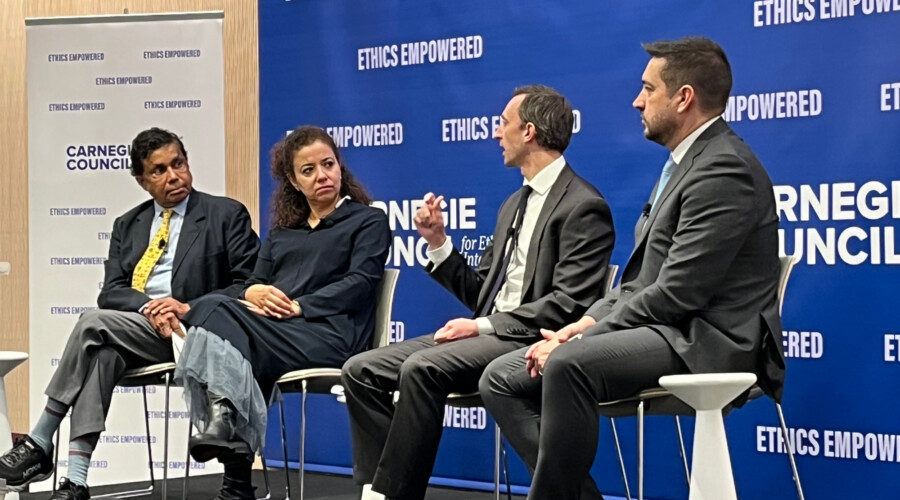Should the U.S. be helping developing countries when it has its own dramatic domestic problems?
The relatively small amount of aid sometimes surprises Americans.
President Obama's increased the 2010 budget for non-military aid to developing countries is nearly $60 billion, but most is for conflict areas like Afghanistan and Iraq. Only about $15 billion is to combat global hunger, poverty, health, and humanitarian issues.
This only meets about 1/5th of the UN goal of .7 percent of US Gross National Income. Nevertheless, $60 billion or $15 billion is big money to most Americans.
The premise of an official ongoing review of American development policy is that funding should "reinforce the universal values we aim to advance."
Tellingly, however, the draft frames the case for foreign aid in terms of national security and economic growth, attempting to reenergize US development policy by calling it a "strategic imperative."
There are then three issues.
- First, does the U.S. have obligation or motivation to provide any aid?
- Second,
if so where should it be targeted?
- Finally, how much should be budgeted.
One moral argument is that the poorest of the poor require assistance without strings. A counter is that U.S. dollars should only serve U.S. national interests. A middle ground recognizes that mutual benefit occurs when the United States views others as peers in pursuit of progress, instead of simply as instruments in pursuit of security or trade goals.
What do you think? What is the American obligation? To whom? How much?
By Evan O'Neil & William Vocke
For more information see:
Council on Foreign Relations, "The
Debate over Foreign Aid," May 6, 2010
Josh Rogin, "White House Proposed Taking Development Role Away from State," Foriegn Policy, May 3, 2010
Evan O'Neil, "Pragmatic Overdose: Ethics and Creativity Are Stifled
in the new U.S. Development Policy", Carnegie Council for Ethics and International
Affairs, June 2010.


